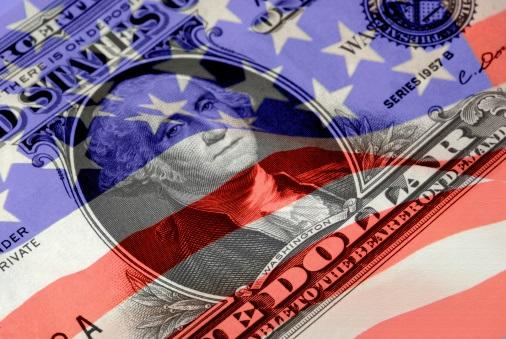Contributing Writer
- FMA
- The Fabricator
- FABTECH
- Canadian Metalworking
Categories
- Additive Manufacturing
- Aluminum Welding
- Arc Welding
- Assembly and Joining
- Automation and Robotics
- Bending and Forming
- Consumables
- Cutting and Weld Prep
- Electric Vehicles
- En Español
- Finishing
- Hydroforming
- Laser Cutting
- Laser Welding
- Machining
- Manufacturing Software
- Materials Handling
- Metals/Materials
- Oxyfuel Cutting
- Plasma Cutting
- Power Tools
- Punching and Other Holemaking
- Roll Forming
- Safety
- Sawing
- Shearing
- Shop Management
- Testing and Measuring
- Tube and Pipe Fabrication
- Tube and Pipe Production
- Waterjet Cutting
Industry Directory
Webcasts
Podcasts
FAB 40
Advertise
Subscribe
Account Login
Search
Trump's "Buy American" campaign extends to defense
Plans to shore up these efforts to be delivered in the fall
- By Stephen Barlas
- May 24, 2017

President Trump has enacted an investigation to see if imported steel may be considered a threat to national security.
Now the focus on the use of foreign steel in U.S. products is on the defense industry.
President Trump expanded his war against imported steel with a second presidential memorandum citing national security concerns. This followed his first focusing on foreign steel used in energy pipelines.
The Commerce Department plans to make recommendations on implementation of this second memorandum. It wants to take a closer look at foreign overcapacity, dumping, illegal subsidies, and other factors as it tries to determine whether steel imports threaten American economic security and military preparedness.
A recent Department of Defense Inspector General report found that the Air Force inconsistently enforced Buy American requirements and purchased foreign-made goods. Under Section 232 of the Trade Expansion Act, the president has broad power to adjust imports—including through the use of tariffs—if excessive foreign imports are found to be a threat to U.S. national security.
The U.S. is relatively unusual in that it has no tariffs on steel but has had to impose antidumping or countervailing duties in over 150 cases, with 13 more currently pending. President Trump discussed and signed the executive order at Snap-On Tools in Kenosha, Wis.
The objective of the process is for all federal agencies that have Buy American laws to detail how they are monitoring, enforcing, and implementing those laws. A particular focus of that effort is on identifying when waivers from the various laws are issued. The agency reports must be submitted to the Commerce Department secretary and the Office of Management and Budget director within 150 days (or by Sept. 15). Commerce Secretary Wilbur Ross will submit specific recommendations to strengthen implementation of Buy American laws by Nov. 24.
Waivers of Buy American laws also concern Democrats in Congress. Sen. Debbie Stabenow, D-Mich., has introduced a bill, for instance, called the Make It In America Act.
EPA Wants to Ban TCE in Vapor Degreasing
Numerous metalworking sectors would be affected by the Environmental Protection Agency’s proposal to prohibit the manufacture, import, processing, and distribution of products containing trichloroethylene (TCE), commonly used in vapor degreasing.
According to the EPA, the chemical poses an unreasonable risk to human health. The agency made this decision after subjecting the chemical to a risk review under the Toxic Substances Control Act (TSCA). Alternatives to TCE with similar performance characteristics are readily available, the agency concluded.
Most of the costs of the rule would be borne by commercial users of TCE in vapor degreasing equipment, because they would have to switch solvents and likely equipment as well. The EPA has estimated that the costs to users range from $32 million to $46 million over 20 years.
The Small Business Administration’s Office of Advocacy has urged the EPA to withdraw the proposed rule because of questions about its risk assessment, particularly the EPA’s reliance on a single study which is “unreproducible,” according to the office. Despite a number of its objections, the office said if the EPA moves forward, it should not apply its ban to closed-loop vapor degreasing systems.
TCE has specific properties that can make its use necessary. Banning TCE's use in vapor degreasing would eliminate entire product lines for some small businesses and lead to very significant costs, according to the SBA’s Advocacy Office. Exempting the relatively safe enclosed vapor degreasers would allow these product lines to continue, while the risks are managed in a responsible way.
subscribe now

The Fabricator is North America's leading magazine for the metal forming and fabricating industry. The magazine delivers the news, technical articles, and case histories that enable fabricators to do their jobs more efficiently. The Fabricator has served the industry since 1970.
start your free subscriptionAbout the Author

Stephen Barlas
- Stay connected from anywhere

Easily access valuable industry resources now with full access to the digital edition of The Fabricator.

Easily access valuable industry resources now with full access to the digital edition of The Welder.

Easily access valuable industry resources now with full access to the digital edition of The Tube and Pipe Journal.
- Podcasting
- Podcast:
- The Fabricator Podcast
- Published:
- 04/16/2024
- Running Time:
- 63:29
In this episode of The Fabricator Podcast, Caleb Chamberlain, co-founder and CEO of OSH Cut, discusses his company’s...
- Trending Articles
Tips for creating sheet metal tubes with perforations

Supporting the metal fabricating industry through FMA

JM Steel triples capacity for solar energy projects at Pennsylvania facility

Fabricating favorite childhood memories

Omco Solar opens second Alabama manufacturing facility

- Industry Events
16th Annual Safety Conference
- April 30 - May 1, 2024
- Elgin,
Pipe and Tube Conference
- May 21 - 22, 2024
- Omaha, NE
World-Class Roll Forming Workshop
- June 5 - 6, 2024
- Louisville, KY
Advanced Laser Application Workshop
- June 25 - 27, 2024
- Novi, MI


























